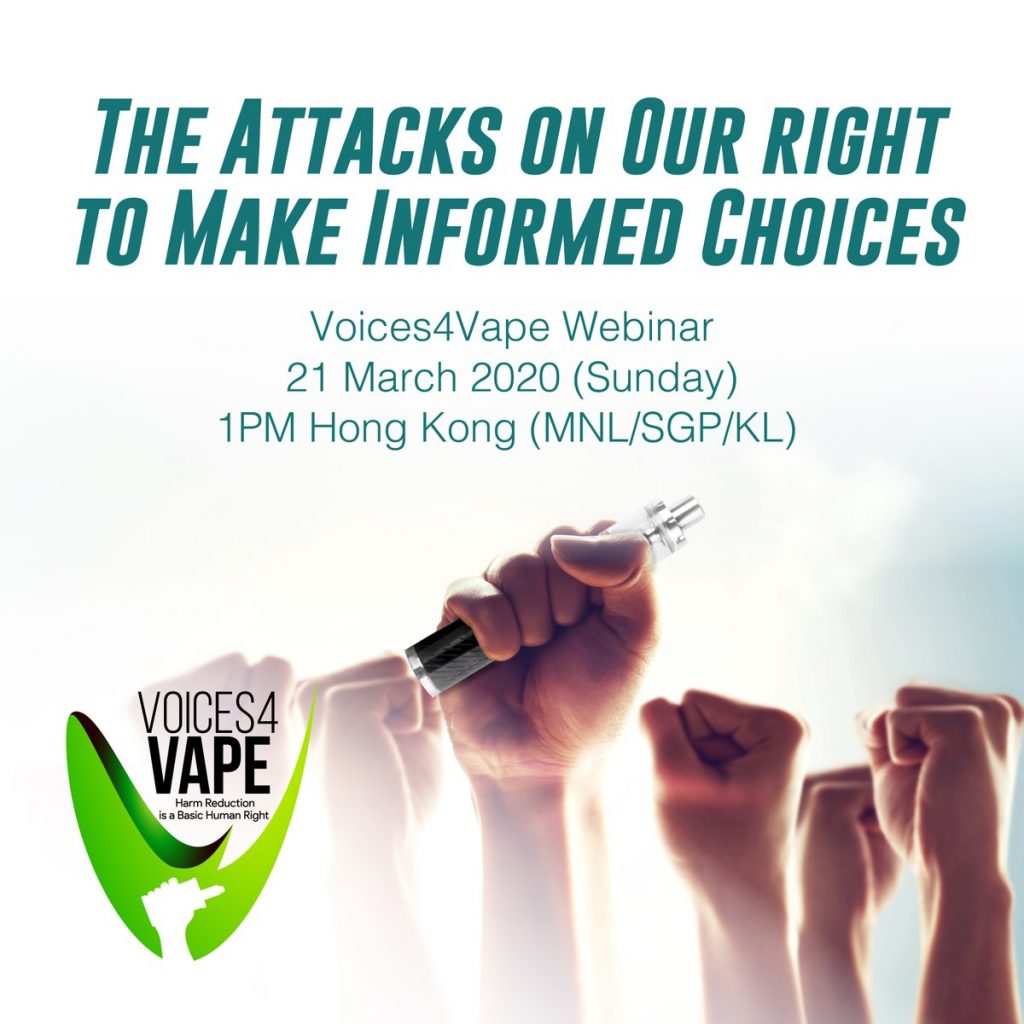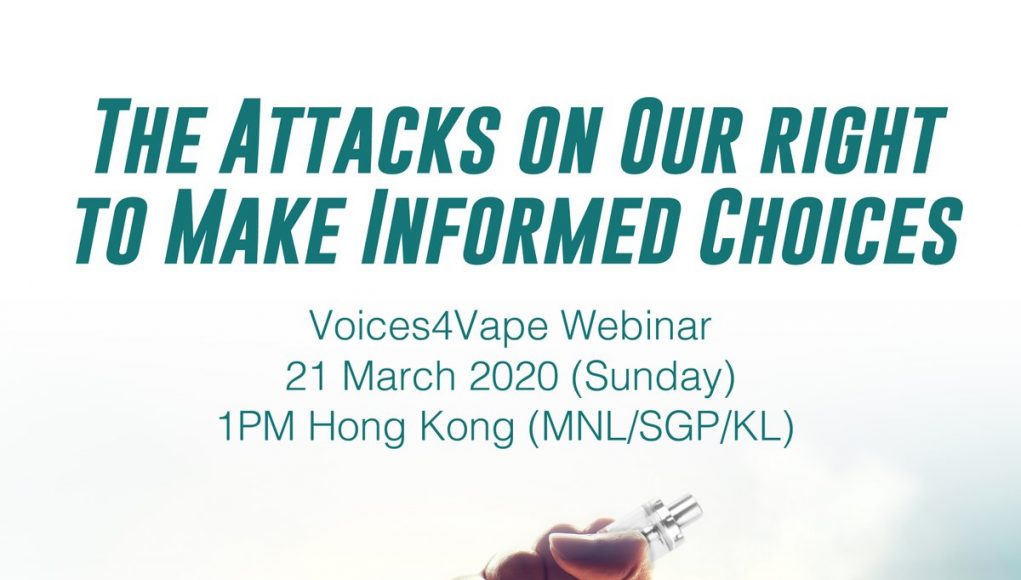The online seminar will be held on the 21st of March 2021, between 1pm and 3pm. Consumers and advocates of safer nicotine products in the Asia-Pacific region, will be using the seminar as a platform to discuss the need for effective public health policy in addressing the smoking epidemic, using the same science and principles used to contain Covid-19.
“The Covid-19 pandemic has focused global attention on the need for rational measures to reduce risks, effectively treat those afflicted and develop vaccines. This is entirely consistent with longstanding public health goals of reducing risks wherever they are found, and the importance of empowering people to improve their health,” said Nancy Loucas, Executive Coordinator of CAPHRA.

Why are harm reduction strategies applied to some areas and not to others?
Science suggests the use of face masks, social distancing, regular washing of hands, and other health protocols and harm reduction strategies, to mitigate the possibility of contracting the virus.
“If governments trust the science on COVID, why are they not trusting the science of THR (tobacco harm reduction)?” asked Loucas, referring to the countless peer reviewed studies indicating the effectiveness of using safer alternatives such as e-cigarettes, heated tobacco products, and snus.

Julie Woessner, a retired lawyer and interim Secretary-General of the International Network of Nicotine Consumer Organisations (INNCO), will discuss how users of safer nicotine products are being attacked, disenfranchised, and bullied by traditional tobacco controllers, and self-righteous health “experts.”
She will also elaborate on how science is being pushed aside for propaganda by powerful financial interest groups such as the infamous Bloomberg Philanthropies. The group is known for its prohibitionist and ineffective advocacies that take away the rights of consumers to choose better alternatives for themselves.
Governments cautioned to not accept funding from groups with vested interests
Based on the recent events which took place in the Philippines, when two members of the House of Representatives were forced to suspend public consultations on vaping products, after the Philippines FDA, was forced to admit that it had received a grant from the Union and Bloomberg Initiative. The CAPHRA is cautioning governments of low and middle-income countries (LMICs), to not succumb to the ploy of vested interest groups who are dangling money in exchange for policies that restrict or ban safer alternatives.
CAPHRA Calls Out Bloomberg On Their Grant-For-Policy Strategy












